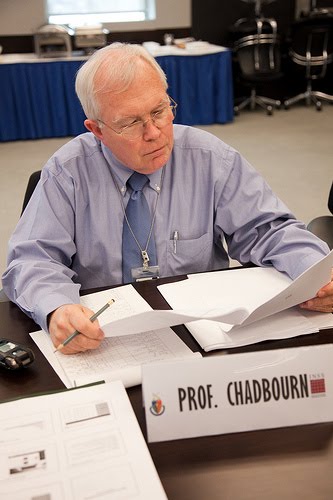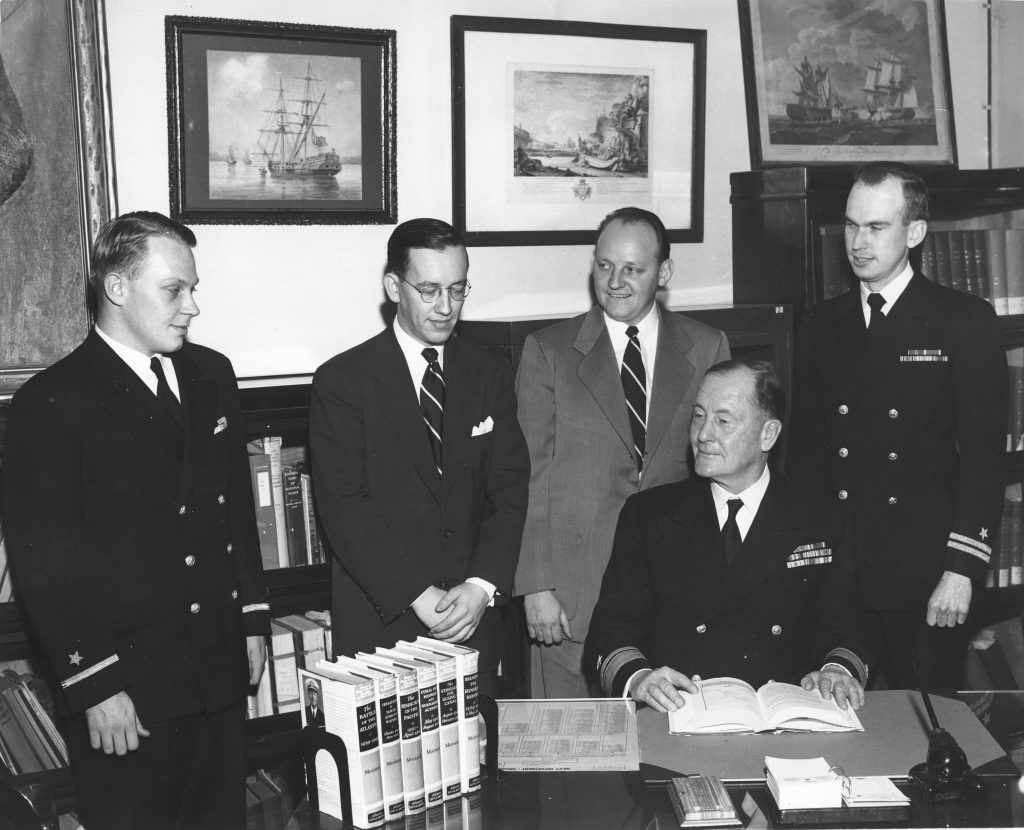 Historians, and those interested in history, are readers. Thucydides anticipated this fact when he wrote his famous account of the Peloponnesian War between Athens and Sparta in the 5th Century BC. He said that his purpose in writing about this great war was to tell the story of events in what he anticipated would be a monumental conflict which, he believed, in one way or another, and in much the same ways, would be repeated in ages to come. In writing about the Peloponnesian War, Thucydides touched upon practically all of the great issues of policy and statecraft, war and strategy, with the possible exception of nuclear weapons. His account was intended as a “possession for all time” and a guide for future commanders and statesmen alike. In 1939 Winston Churchill attested to his legacy when he reputedly said that the only two books people needed to read to understand what was happening in that age were Hitler’s Mein Kampf and Thucydides’ History of the Peloponnesian War. Thucydides is widely read to this day in military academies and service colleges around the world.
Historians, and those interested in history, are readers. Thucydides anticipated this fact when he wrote his famous account of the Peloponnesian War between Athens and Sparta in the 5th Century BC. He said that his purpose in writing about this great war was to tell the story of events in what he anticipated would be a monumental conflict which, he believed, in one way or another, and in much the same ways, would be repeated in ages to come. In writing about the Peloponnesian War, Thucydides touched upon practically all of the great issues of policy and statecraft, war and strategy, with the possible exception of nuclear weapons. His account was intended as a “possession for all time” and a guide for future commanders and statesmen alike. In 1939 Winston Churchill attested to his legacy when he reputedly said that the only two books people needed to read to understand what was happening in that age were Hitler’s Mein Kampf and Thucydides’ History of the Peloponnesian War. Thucydides is widely read to this day in military academies and service colleges around the world.
In 1941 when the United States went to war, so too did books. Molly Guptill Manning’s recent monograph (2014) When Books Went to War: The Stories That Helped Us Win World War II tells the powerful story. Outraged librarians launched a campaign to send free books to American troops, and 20 million hardcover donations were collected in response to Nazi book burning. More were needed. In 1943 the War Department and the publishing industry came up with an extraordinary program to meet the desire for books: 120 million inexpensive, lightweight paperbacks comprising 1,200 different titles covering every conceivable subject and genre were produced as part of the pocket-sized Armed Services Editions. Collectors’ items today, these books were carried everywhere by American soldiers, sailors and airmen. Manning argues that the accessibility of mass-market paperbacks, in conjunction with the GI Bill, helped build a new literate middle class in the post-war era.
With these observations in mind on the power of books we begin a new series with this issue of IJNH entitled “What Are They Reading?” Rather than full book reviews this column provides simply an opportunity to share with colleagues a brief description of any good book you may have encountered recently. We suspect most titles will be historical in nature, but they do not have to be. The intent of these articles is simply to offer recommendations on interesting books of potential interest to our readers. Please forward future contributions directly to the Editor. We hope to make this a regular feature in future issues of the journal.
This is by far the most robust and diverse issue of IJNH in recent years. Our lead article by Will Edwards discusses the importance of the concept of the fast carrier task force that proved so essential to the course and outcome of the war in the Pacific from 1941-1945. Stories by Ken Wenzer and Daniel Roberts provide new insight on the planning for and conduct of the Spanish American War. Roberts’ piece in particular reminds us of the importance of taking off our blinders and clear thinking in the development of strategy. The Minister of Marine of Spain in 1898 was quite confident on the eve of the war with the United States that the Spanish Navy would be victorious because American vessels were crewed by “people of all nationalities” where desertion rates were high. Admiral George Dewey had these reports read aloud to his crew on Olympia, one in twenty of whom where Chinese, as they steamed towards Manila, accompanied by much laughter and jeering. After the war Dewey recommended fifty of his Chinese sailors be honored with American citizenship for their service, only to be ignored by the Congress.
Dr. Robert Gates reminds us of the important contributions of the Navy Lab system to a modern Navy in a technological age. Gregory Gilbert shares insights of the Australian armed forces gained from their campaigns in Borneo in 1945. Ambjorn Adomeit writes about the strategic thinking that undergirded American perceptions on acquisition of the Hawaiian Islands, especially the contribution of Alfred Thayer Mahan.
I call your special attention to the story by distinguished scholar Phillip K. Lundeberg, Curator Emeritus of the Smithsonian Institution. Lundeberg served at sea as an American Naval Officer in World War. His ship USS Fredrick C. Davis was the last American warship sunk by a German submarine in the Battle of the Atlantic. After the war . Lundeberg completed his Ph.D. at Harvard with the renowned Samuel Elliot Morrison, in the process becoming the acknowledged expert on the Battle of the Atlantic. He is the sole surviving member of the team of historians who helped Morrison produce his monumental History of United States Naval Operations in World War II (15 volumes.)

The team of historians responsible for compiling the 15 volume History of United States Naval Operations in World War II, c. 1952, Main Navy Building. (Left to Right) Ensign Richard Saltonstall Pattee, USNR (wrote for Sub war in Pacific); Roger Pineau (office manager); Don Martin (Yeoman to Morison); Rear Admiral Samuel Eliot Morison, USNR; Lt. Phil Lundeberg, USNR
Dr. Lundeberg has long been concerned over the ethics underlying the treatment of German survivors and prisoners of war captured near the end of the war, particularly those imprisoned and interrogated at Fort Hunt in Virginia, just north of Mount Vernon. The article published here is a professional paper he delivered in absentia at “The Battle of The Atlantic Remembered,” an Academic Conference coordinated by Robert van Maier, Editor-in-Chief, Global War Studies, at Liverpool, May 23-24, 2013. Dr. Phil as he is affectionately known today would be the first to say the story is far from complete and represents a unique opportunity for further academic investigation. As recent political events suggest, the ethical issues surrounding interrogation remain relevant.
Finally, we continue our ongoing examination of various naval archives which may be of interest to naval historians and other researchers. Our focus in this issue is an extended look at the Naval Historical Collection at the United States Naval War College in Newport, RI, by Head Archivist Dara Baker who confirms she would be delighted to work with scholars interested in these specialized collections. We hope our readers find this series as a whole helpful. As Editor I would welcome suggestions of other archives for future inclusion in this series. Please forward ideas to either Dara or myself.
As always, we hope you will share news of the International Journal of Naval History with colleagues and friends. All they need do is Google IJNH to find us. Perhaps you have scholarly studies you would like us to consider for publication. For those supervising graduate work in the academic world we invite you to encourage your students who have made new or interesting discoveries of their own to submit articles for consideration.
Dr. Charles C. Chadbourn, III
Editor, International Journal of Naval History
Professor of Strategy, U.S. Naval War College
(Go to April 2016 Table of Contents)
